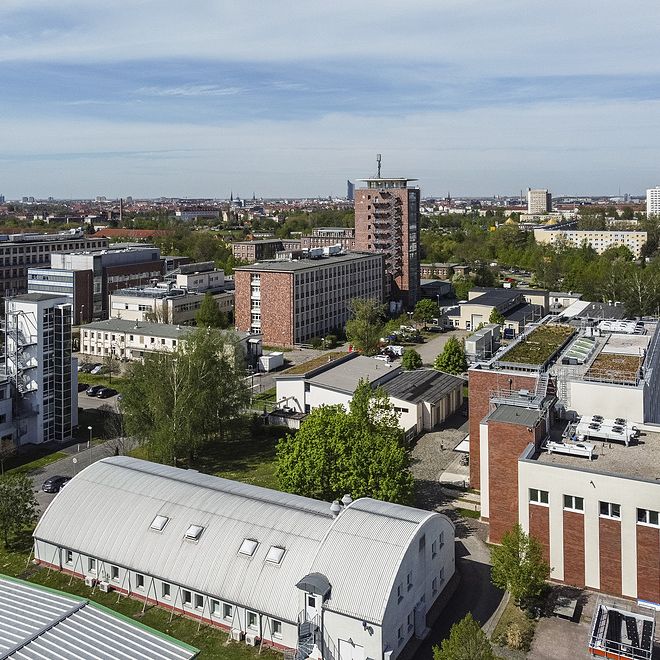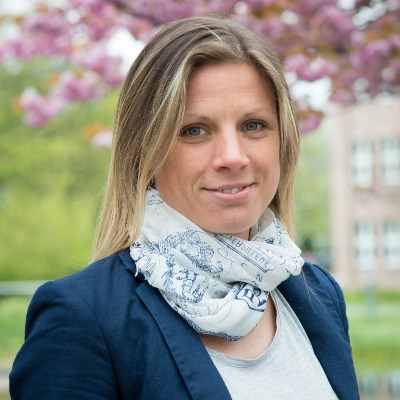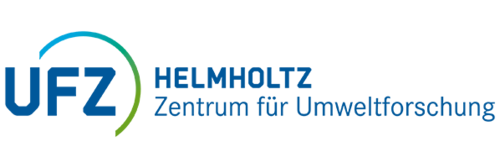Die Vordenker für Umweltlösungen: Das UFZ zählt zu den weltweit führenden Instituten in der Umweltforschung und entwickelt mit modernster Technologie nachhaltige Konzepte zum Schutz unserer natürlichen Ressourcen.
Mit HIDAs Mobilitätsprogrammen können Data-Science-Talente am Helmholtz Zentrum für Umweltforschung (UFZ) an Lösungen für globale Umweltprobleme arbeiten. Zudem spielt der Transfer von Wissen in die Praxis eine zentrale Rolle, etwa durch innovative Monitoring-Tools wie den Dürre- und Waldzustandsmonitor sowie den Erneuerbare-Energien-Monitor.
Jetzt bewerben!

Die Programme
Mit HIDA Helmholtz Munich kennen lernen
Das Helmholtz-Zentrum für Umweltforschung ist Teil der Helmholtz Gemeinschaft.
Mit folgenden Programmen können Data Science Talente am Zentrum forschen.
Das UFZ ist eine führende Forschungseinrichtung im Bereich der Umweltforschung mit über 1.100 Mitarbeitenden. Es untersucht die Auswirkungen menschlicher Aktivitäten auf die Umwelt, insbesondere in Bezug auf Klimawandel, Landnutzung, Bevölkerungswachstum sowie den Energie- und Nahrungsbedarf. In interdisziplinären Teams entwickeln die Forschenden Lösungen für globale Umweltprobleme.
Forschungsschwerpunkte:
- Biodiversität und Ökosystemleistungen
- Qualität und Quantität von Wasserressourcen
- Klimaschutz- und Klimaanpassungsforschung
- Landnutzungskonflikte
- Energiewende
- Bioökonomie
- Wirkung von Chemikalien auf Mensch und Umwelt

Die Standorte
Die Standorte
Das UFZ ist an mehreren Forschungsstandorten aktiv:
- Leipzig (Hauptstandort)
- Halle
- Magdeburg
Kompetenzen des UFZ im Bereich Data Science und KI
Das UFZ setzt Data Science und Künstliche Intelligenz ein, um Umweltprozesse besser zu verstehen und Lösungen für den Schutz der natürlichen Lebensgrundlagen zu entwickeln. Mit Hilfe von Big-Data-Analysen und maschinellem Lernen werden Umweltveränderungen, wie etwa die Auswirkungen des Klimawandels oder die Veränderung der Biodiversität, präzise modelliert. Das UFZ nutzt KI, um Umweltdaten zu analysieren und nachhaltige Handlungsempfehlungen zu generieren. Besonders im Bereich der Umweltmonitoring-Systeme und der Ressourcennutzung wird KI als Schlüsseltechnologie eingesetzt, um Prozesse effizienter und nachhaltiger zu gestalten.
- KI-gestützte Umweltmodellierung
- Analyse von Klimadaten und Simulation von Klimafolgen
- Automatisierte Auswertung von Umweltmonitoring-Daten
- Optimierung von Landnutzung und Ressourcenschonung mit maschinellem Lernen
- Entwicklung nachhaltiger Energiekonzepte durch KI
Das UFZ zählt zu den weltweit führenden Instituten der Umweltforschung und setzt KI sowie Data Science gezielt ein, um Lösungen für eine nachhaltige Zukunft zu entwickeln und die Lebensgrundlagen der Erde zu sichern.
Bewerbungshinweise
Hinweise zur Bewerbung
Helmholtz-Betreuer
Lernen Sie hier einige potentielle Gastgeberinnen und Gastgeber an verschiedenen Helmholtz-Zentren kennen und erfahren sie mehr über deren jeweilige Data Science-Forschung durch einen Klick auf die Karten.
Bitte beachten Sie: Kontaktieren Sie Ihren potenziellen Betreuer oder Ihre potenzielle Betreuerin bitte vorab per E-Mail, um ein Forschungsprojekt vorzuschlagen und zu besprechen. Reichen Sie erst nach dieser Klärung Ihre Bewerbung ein.
Wenn Sie Fragen haben, senden Sie bitte eine E-Mail an: hida@helmholtz.de
Sie möchten selbst gerne Helmholtz-Gastgeber werden und suchen nach Unterstützung für Ihr Forschungsprojekt? Dann wenden Sie sich ebenfalls an die oben genannte E-Mail Adresse.
Die Hosts am UFZ
Lernen Sie hier einige potentielle Gastgeberinnen und Gastgeber am Helmholtz-Zentrum für Umweltforschung kennen und erfahren sie mehr über deren jeweilige Data Science-basierte Forschung.
Bevor Sie Kontakt mit den potenziellen Gastgebern aufnehmen, lesen Sie bitte die Hinweise zur Bewerbung.
Bitte beachten Sie: Die hier aufgeführte Liste zeigt lediglich eine Auswahl möglicher Gastgeber.
Darüber hinaus können Sie auch eigenständig potenzielle Hosts im Zentrum kontaktieren und mit ihnen eine Teilnahme am HIDA Mobility Program vereinbaren.

Jana Schor
Microbial Data Science
Ansprechpartner

Short summary of your group's research: The new research group Data Science under the supervision of Dr. Jana Schor focuses on Data Science methods, like Machine Learning and Data Integration, to boost the extraction of knowledge from human and environmental health Big Data sets. We apply and develop respective computational methods on public and in-house data sets, mainly in the field of environmental and health research, to generate novel hypotheses, and make predictions on a large scale. To increase the credibility of our AI approaches we introduce explainability and methods for the quantification of uncertainty into our applications. We further attach great importance on the principles of reproducible research.
What infrastructure, programs and tools are used in your group? High performance computing infrastructure at the UFZ and storage as well as data integration capabilities of the European Open Science Cloud; Software is developed in R, and Python, and is provided in Singularity containers and/or in public gitlab repositories at the HZDR; for training our deep learning models or other computationally expensive calculations we use the GPUs that are integrated into our servers and the HPC system.
What could a participant of the HIDA Trainee Network learn in your group? How could he or she support you in your group? A participant of the HIDA Trainee Network will learn to organize his/her data analysis or software development projects according to clear data management plans and with SOPs that allow shared and joint code development, respective documentation, and the reproducibility of research results. We offer to share our expertise in the application of machine learning approaches and respective data pre-processing strategies. Further, we are experienced in story telling with data and offer to teach respective principles to the participants. We welcome participants with a background in machine learning who are interested in the applications of their methods to our research questions, e.g. in the field of predictive toxicology. We also invite researchers with a chemistry, (eco-)toxicological or biological background who might inspire us with interesting research questions and who are willing to learn helpful data science strategies.

Ulisses Nunes da Rocha
Microbial Data Science
Ansprechpartner

Short summary of your group's research: Our group strives to assess environmental health of terrestrials and man made environments by predicting how resilient/stable microbial communities are to disturbances. A special emphasis is put on the development of concepts and theories to scale microbial interactions to the real diversity found in nature. The key research topics of the Microbial Data Science group are based on genetic potential of microbial communities, multi-omics integration and predictive biology. Currently these topics cover:
- Use of (in silico) mock microbial communities to test microbial ecology theories;
- From microbial 'Big Data' to novel ecological concepts and theories;
- Predictive analytics in microbiology, microbial ecology and environmental microbiology.
What infrastructure, programs and tools are used in your group? We use the High-Performance Computing (HPC) Cluster EVE as our main computational resource. We develop and use tools to analyze, resolve and interpret multi-omics data, specially metagenomes. Eg.: tools for the recovery of multi-domain genomes (prokaryotes, viruses and eukaryotes) from metagenomic data. As programming languages, we mostly use Python, R, Bash and Perl to handle and process microbial big data.
What could a participant of the HIDA Trainee Network learn in your group? How could he or she support you in your group? A participant from the HIDA Trainee Network will learn how to download, process and interpret metagenomic data using both publicly available datasets as well as in-house generated data. Further, the participant will work with hands on experimental design and predictive analytics using omics data. We welcome participants from a broad range of fields (e.g. microbiology, ecology, computer/data science) that are eager to learn and/or expand their knowledge in computational biology/data science.

Mariana Madruga de Brito
Environmental Risks & Vulnerability
Ansprechpartner

Short summary of your group's research: The research stay will be conducted at the working group Environmental Risks and Extreme events led by Prof. Christian Kuhlicke (https://www.ufz.de/index.php?en = 40374). Dr. Mariana Madruga de Brito will supervise the research. The group has expertise in computational social sciences and digital humanities. We use text as data for natural hazards adaptation, resilience and vulnerability research. We are particularly interested in understanding how these processes affect society and who are prominent stakeholders. Topics of interest include natural language processing (NLP), topic modelling, and unsupervised and supervised learning algorithms. Our text corpora include newspaper articles, tweets, and large sets of peer-reviewed articles.
What infrastructure, programs and tools are used in your group? The participant will have access to high-performance computing infrastructure at the UFZ. As programming languages, we mainly use R and Python.
What could a participant of the HIDA Trainee Network learn in your group? How could he or she support you in your group? As an interdisciplinary research group, we offer many possibilities for a participant of the HIDA Trainee Network and many different applied projects to support. Weekly meetings will be conducted to help monitor progress. The participant can either apply their NLP knowledge to our existing data or shape a new project together with a focus on natural hazards and climate change adaptation research. The final goal is to have a prominent joint publication.

Jakob Zscheischler
Computational Hydrosystems
Ansprechpartner

Three-sentence summary of your group's research: We work on better understanding and modelling compound weather and climate events and their impacts. We use statistical and machine learning approaches to analysis climate and impact data to better understand compounding climate drivers of impacts, We further analysie climate model projections to estimate future climate risk.
What infrastructure, programs and tools are used in your group? We analyse large amounts of data, learn new statistical and machine learning approaches to estimate climate risks.

Jian Peng
Hydrology and Remote Sensing
Ansprechpartner

Short summary of your group's research: The Department of Remote Sensing conducts innovative research to advance the understanding of the Earth system via various remote-sensing techniques. It has extensive research experience in quantifying land surface dynamics from multi-source Earth observations across scales. Another focus lies on the investigation of land-atmosphere interaction and climate extremes using novel remote sensing products.
What infrastructure, programs and tools are used in your group? Our team has established data lake to facilitate access to and analyse of datasets from satellite, airborne remote sensing and earth system model outputs. Modelling frameworks including radiative transfer model and land surface model have also been developed in last years. Computational infrastructures including in-house HPC and external cloud computing system can also be used by guest researchers.
What could a participant of the HIDA Trainee Network learn in your group? How could he or she support you in your group? The guest researcher can benefit from our expertise on:
1.Quantification of land surface parameters using multi-source remote sensing observations.
2. Integrate remote sensing data and land surface modelling framework to better quantify water cycle and vegetation dynamics
3. Explore land-atmosphere feedbacks and hydro-climatic extremes through novel use of remote sensing datasets (e.g., detection of extreme events, impacts of extremes on water cycle and ecosystems).
The guest researcher are encouraged to contribute to the above mentioned research topics using machine learning approaches.

Oliver Lechtenfeld
Environmental Analytical Chemistry
Ansprechpartner

Short Summary of your Groups research: The research group BioGeoOmics integrates state-of-the art instrumental and methodological approaches to study dynamic interactions of molecules in the environment. These molecular interactions include natural processes (e.g. metabolism, organic matter diagenesis) as well as anthropogenic interferences (interaction of biological systems with chemicals). In addition to analytical method development we also develop chemoinformatics and machine learning aided data evaluation techniques.
What infrastructure, programs and tools are used in your group?At the core of the the analytical toolkit of the BioGeoOmics-group, we use ultra-high resolution mass spectrometry (FT-ICR MS) and mass spectrometric imaging (MSI). We devolp methods for non-target metabolomics and biogeochemistry using stable isotopes to study chemical and biological transformations of organic molecules, their spatial localization in tissues, and to identify metabolites and unknown chemicals and transformation products in complex mixtures.
Our group develops (automated and interactive) data processing pipelines using R, the ETL platform KNIME, and PostgreSQL DBMS. We apply multivariate statistical tools and machine learning models to extract knowledge from the zentillion data points generated from ultra-high resolution mass spectrometry and large evvironmental data sets.
What could a participant of the HIDA Trainee Network learn in your group? How could he or she support you in your group? Since our group has a focus on non-targted mass spectrometry, our guest researchers will be able to learn how to utilize and interpret non-targeted data, how to use statistical tools to evaluate the data quality, and how to derive confidence limits inorder to make sound statements about the data. Besides instrumental training on state-of-the art FT-ICR MS systems, we can provide helpful insights about data management and quality control.
Future guest researchers are welcome to provide input on fast and efficient visualization strategies for large amount of data points, on (technical legal) aspects) of software publication, and on continuous integration/deployment.

Rohini Kumar
Hydrosystemmodellierung
Ansprechpartner

Three-sentence summary of your group's research: Our group works on improving our understanding of hydroclimatic drivers, anthropogenic pressures, and responses to the fate of water and nutrient cycles in the terrestrial system. We use data analytics and mechanistic modeling approaches to analyze and disentangle the varying role of climate, landscapes, and socioeconomic drivers shaping the hydrological response of the system. Our analysis encompasses a range of temporal scales and spatial domains varying from hourly to annual timescale in small headwater catchments to big continental-scale river basins, and our investigations cover challenging freshwater resource problems with an emphasis on unraveling hydroclimatic extremes (e.g., floods, droughts, heatwaves) under historical, contemporary and future climate conditions.
What infrastructure, programs and tools are used in your group? We use both the local PC and High-Performance Computing (HPC) systems tailored to specific needs. We use our in-house developed multi-scale hydrologic modeling system (www.ufz.de/mhm) and water quality models for large-scale simulations.
What could a guest researcher learn in your group? How could he or she support you in your group? Given the wide diversity of our work, we offer learning processes on the building blocks of mechanistic models, working with large-sample and large-scale databases. We welcome and invite researchers from different disciplines (e.g. computational hydrology, water quality, agronomy, and soil sciences) to work with us on synthesizing and documenting processes, patterns, and trends of water and nutrient flow under historical and future climate and socioeconomic conditions.

Elina Takola
Computational Landscape Ecology
Ansprechpartner

Three-sentence summary of your group's research: My research interests are in the field of landscape ecology, with a focus on animal ecology, biodiversity monitoring, data syntheses and meta-analyses.
I am a supporter of open science and FAIR principles. I mostly R and sometimes Python to analyze published studies and big datasets.
What could a guest researcher learn in your group? How could he or she support you in your group? Guests can participate in data synthesis projects and meta-analyses. We summarize large amounts of literature in a comprehensive way, in order to provide a complete picture of evidence to scientists, stakeholders and decision-makers.



